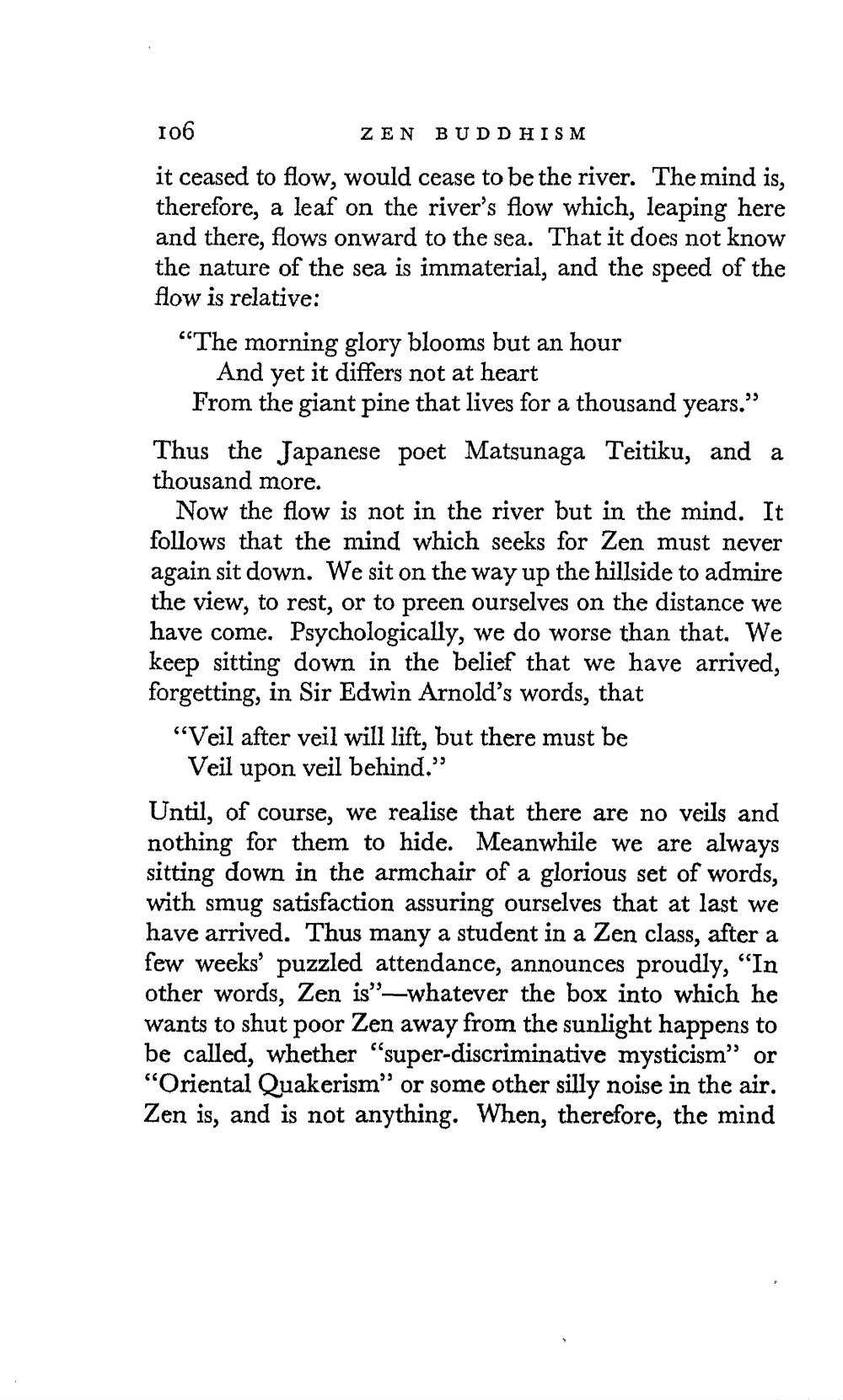________________
106
ZEN BUDDHISM it ceased to flow, would cease to be the river. The mind is, therefore, a leaf on the river's flow which, leaping here and there, flows onward to the sea. That it does not know the nature of the sea is immaterial, and the speed of the flow is relative: “The morning glory blooms but an hour
And yet it differs not at heart From the giant pine that lives for a thousand years." Thus the Japanese poet Matsunaga Teitiku, and a thousand more.
Now the flow is not in the river but in the mind. It follows that the mind which seeks for Zen must never again sit down. We sit on the way up the hillside to admire the view, to rest, or to preen ourselves on the distance we have come. Psychologically, we do worse than that. We keep sitting down in the belief that we have arrived, forgetting, in Sir Edwin Arnold's words, that “Veil after veil will lift, but there must be
Veil upon veil behind." Until, of course, we realise that there are no veils and nothing for them to hide. Meanwhile we are always sitting down in the armchair of a glorious set of words, with smug satisfaction assuring ourselves that at last we have arrived. Thus many a student in a Zen class, after a few weeks' puzzled attendance, announces proudly, "In other words, Zen is"—whatever the box into which he wants to shut poor Zen away from the sunlight happens to be called, whether "super-discriminative mysticism" or “Oriental Quakerism" or some other silly noise in the air. Zen is, and is not anything. When, therefore, the mind




